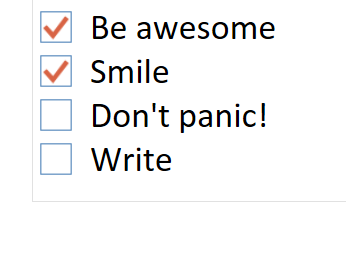Battling Perfectionism | Lana Sky
- Lana Sky
- Aug 12, 2015
- 3 min read

If you’ve heard the words, “You will never be satisfied, will you?” flung your way more than once by a disgruntled beta, then congratulations, my friend; you are probably a perfectionist, consumed by the encompassing need to make sure that every word, paragraph, character, curtain, rug, painting, ect, in your story is PERFECTLY written, placed and executed.
In other words: you beat yourself silly over your keyboard striving for a level of “perfect” writing that you fear you will never achieve. The plus is that you’re willing to slave and toil over your writing. The downside is that you rarely feel accomplished—in fact, it might be just the opposite.
But don’t fret. I too share this problem, and I’ll (hopefully) share some tips to manage your out-of-control expectations and—even better—become satisfied with your work. It’s all about baby steps.
______________________________________________________
Step one: Admit you have a problem, and then realize that you are not perfect. Say this out loud, once or twice. Maybe recite it again while looking in a mirror. Then scream it—at yourself—again, and again.
Is it finally sinking in?
You are not perfect, and sometimes just saying that out loud is enough to help put that fact into perspective. You are not perfect—which is a good thing! The most beautiful, enthralling, enchanting things in life are the anomalies; those weird deviations from nature’s standard that make us sit back and take a second glance. From your imperfections can a unique story spawn—you only have to trust yourself.
Sometimes it’s good to sit back and take a hard look at your writing. Your prose might be flat, your writing style meandering, and you may or may not grasp the basic concepts of grammar. BUT, you DO have a kickass sense of plot development and your characters and fluid and dynamic. Take those positives, and use them to out weight the perceived flaws and draw contrast.
Step two: Listen to people. Sometimes on our quest for perfection, we might end up bashing our stories into the ground in the process. It never hurts to listen when a beta, trusted reader or friend warns you to hold your horses. This blog post conveniently lists out some resources to help you find such betas, if you don’t already have any on hand.
Step three: Focus on what you like. The negatives can have us seeing red, but try focusing on the positives. Make a list. Highlight the lines you like as you edit, rather than the ones you want to change. Visualizing what you LIKE can make it easier to plot a course toward realizing your vision.
Following this tip, it’s good to visualize your story in ways that go beyond the words you have written on a page. Pinterest and Tumblr are great resources for creating visual storyboards which can help you keep you focused without the pressure of a checklist of negatives to live up to.
Step four: Set realistic goals. While writing or editing your draft, set small, REALISTIC goals that you hope to achieve during every session. Maybe it’s “I’ll add more emotion here.” “I’ll flesh out this part so the character motivations are clearer.” “I’ll make this section more streamline.” Once you hit that target goal, STOP. Sit back, read your work again and take pride in the fact that you achieved your desired outcome. It can help to even make a visual checklist using a program like One Note that lets you tick off a checklist.

Sometimes this doesn’t always work, but when it does the brief sense of achievement you feel can outweigh any negatives.
Step Five: NEVER compare your work to anyone else’s. Read for fun, maybe research—but that’s it. The moment you hold up your writing to someone else’s you stop appreciating the uniqueness that is YOU. Your writing is—and should be—unlike anyone else’s, for better or worse. It’s uniquely you.
______________________________________________________
These tips are not the cure-all for being a raging perfectionist—but, taken one at a time, they can help minimize the frustration and help you achieve your goals, whether they center around writing or something else.
Have these tips helped you?
Want to share your own? Let me know in the comments.
______________________________________________________
Learn more about Lana Sky on her Facebook Page








Comments